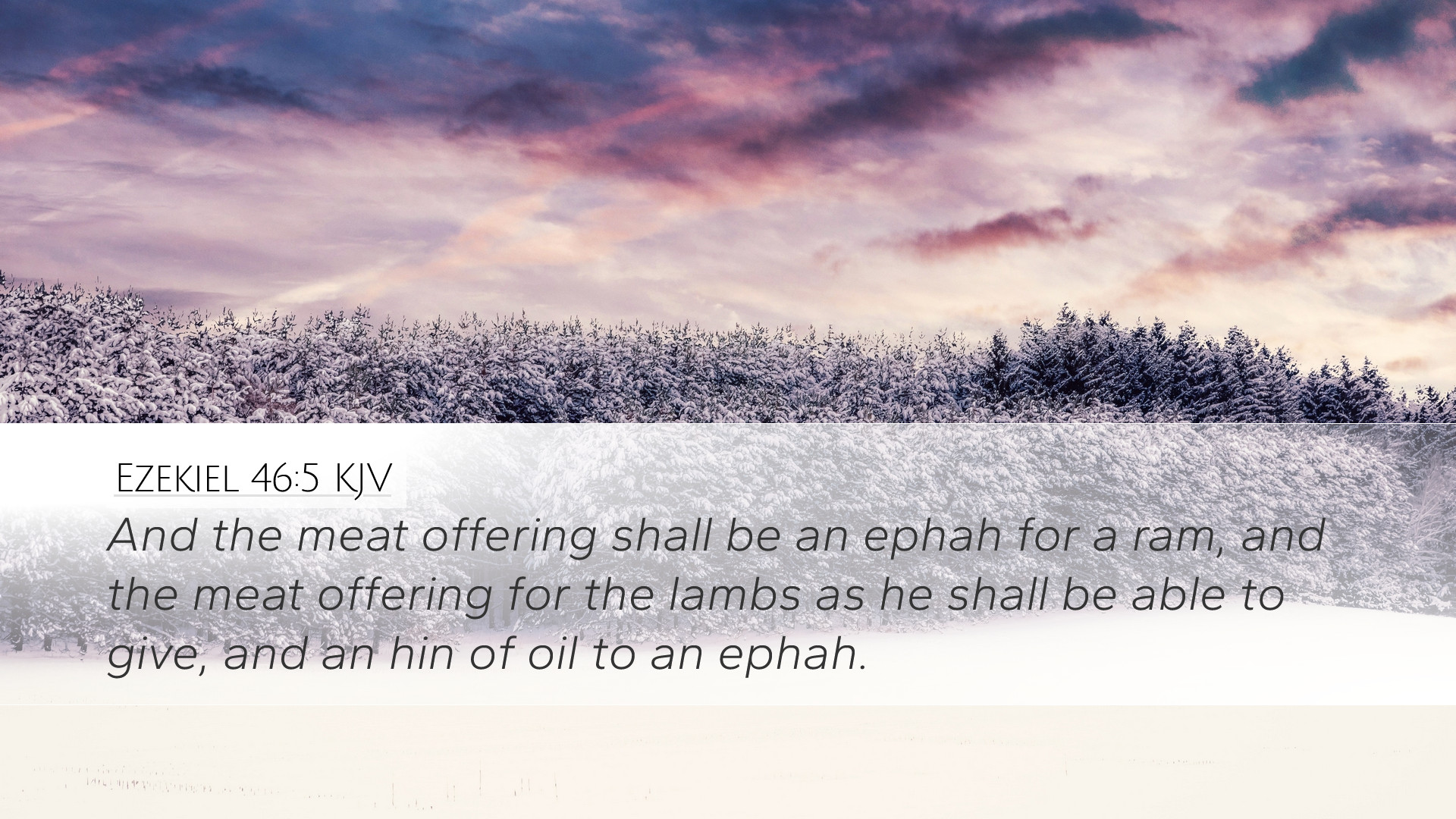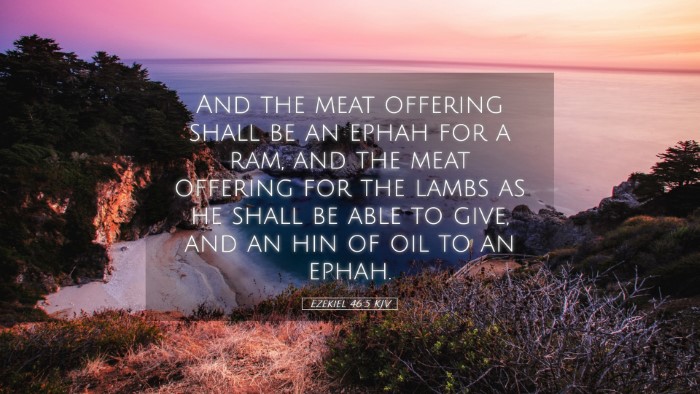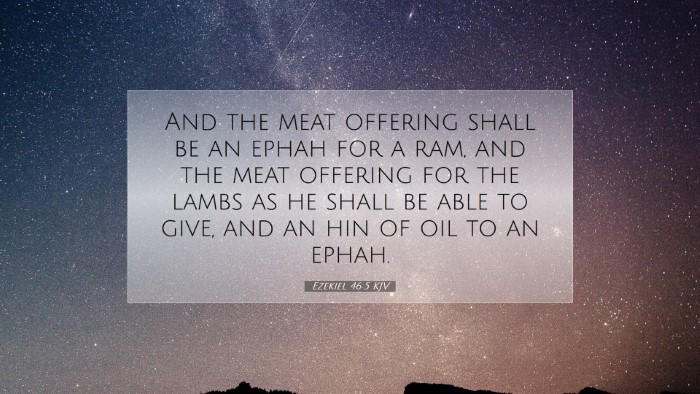Bible Commentary on Ezekiel 46:5
Verse: Ezekiel 46:5 - "And the burnt offering that the prince shall offer unto the LORD in the sabbath day shall be six lambs without blemish and a ram without blemish."
Contextual Overview
The Book of Ezekiel, written during the Babylonian exile, presents a prophetic vision of restoration and a return to proper worship. This verse appears in a section where detailed instructions for the temple services and the role of the prince are provided. It emphasizes the importance of sacrifice and worship in the reestablished community of Israel.
Commentary Insights
- Matthew Henry:
Henry emphasizes the significance of the sabbath as a time of rest and reverence to the Lord. He notes that the prince's offerings on this day highlight the necessity of worship that is regular and punctual. The choice of six lambs signifies completeness and sufficiency in worship, acknowledging that the multitude of offerings reflects the people’s devotion to God.
- Albert Barnes:
Barnes elucidates the specific requirements for the burnt offerings made by the prince on the sabbath. He stresses that such offerings symbolize dedication and commitment to God. He posits that the specific directives indicate order in worship and serve to differentiate between the offerings and practices of the everyday life of the people and those dedicated to the sabbath. This separation instills a higher regard for holiness on this distinguished day.
- Adam Clarke:
Clarke adds a note on the meaning of the burnt offerings, explaining that these are meant for atonement and consecration. He remarks on the number of lambs and the specific mention of a ram, suggesting that the offerings were meant to cover both individual and communal aspects of worship. Clarke points to the historical context, viewing these offerings as a divine command that reflects God’s desire for a people set apart through worship and obedience.
Theological Implications
This verse reflects profound theological themes surrounding sacrifice, atonement, and communal worship. The act of offering on the sabbath is a reminder of the need for continued devotion to God. Furthermore, it brings to light the concept of a devoted leader represented by the prince, who assumes responsibility for the spiritual well-being of the nation.
1. The Importance of Sacrifice
Sacrifice within the Mosaic law was central to Israel’s identity. The significance of the offerings mentioned in Ezekiel 46:5 serves to reestablish the link between worship and communal identity. Commentators point to the fact that these sacrifices were not merely ritualistic but held deep spiritual meaning.
2. The Role of the Prince
The prince's role in Ezekiel's vision is multifaceted; he acts not only as a political leader but also as a spiritual guide. By bringing these offerings, he embodies the ideal of leadership that Israel should aspire to follow. The prince represents the nation before God, thus fulfilling a priestly function during times of worship.
3. Sabbath Observance
The sabbath is presented as a divinely ordained day of rest and reflection. This command emphasizes that worship should permeate the community's life, especially during sacred times. The mention of specific offerings to be made during the sabbath elevates this day above ordinary time, providing a rhythm of sacredness that cultivates spiritual discipline within the populace.
Practical Applications
For contemporary believers, Ezekiel 46:5 serves as a profound reminder of the discipline and dedication required in worship. The act of bringing offerings, whether sacrifices of material goods or our very lives, is a way of acknowledging God’s sovereignty and covenant. Moreover, the text challenges church leaders to embody a spirit of service and devotion that encourages communal worship and unity among believers.
- Leadership in Worship:
Pastors and church leaders should take from the example of the prince the importance of leading congregations in reverent worship and offering to God.
- Observance of Holy Times:
Believers are encouraged to observe and value times dedicated to the Lord, engaging in practices that foster a deeper relationship with God.
- Intentional Offering:
The act of offering should be intentional and reflect a heart committed to worship, akin to the sacrifices of old but rooted in modern expressions of faith.
Conclusion
In summary, Ezekiel 46:5 offers critical insights into the nature of worship, sacrifice, and leadership. The historical context and theological implications draw a rich tapestry of meaning that challenges and inspires modern believers. Through the reflections of Matthew Henry, Albert Barnes, and Adam Clarke, we are beckoned to reevaluate our own practices of devotion, our understanding of holy days, and our roles within the body of Christ.


